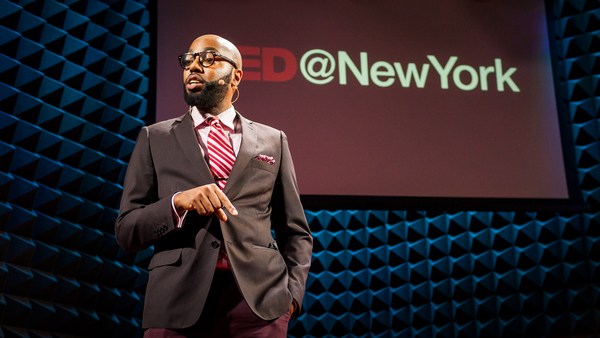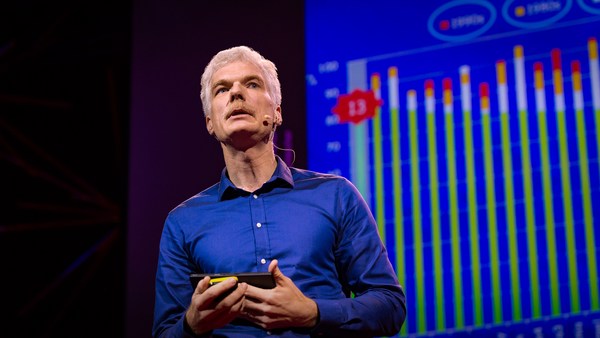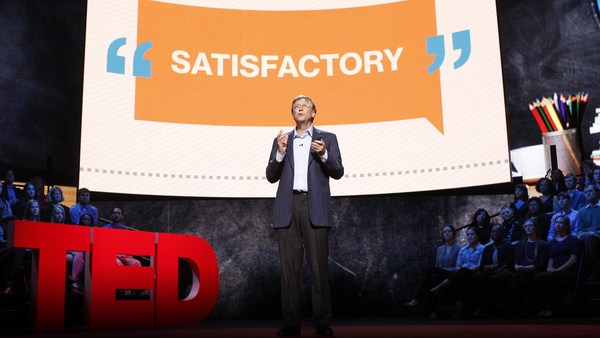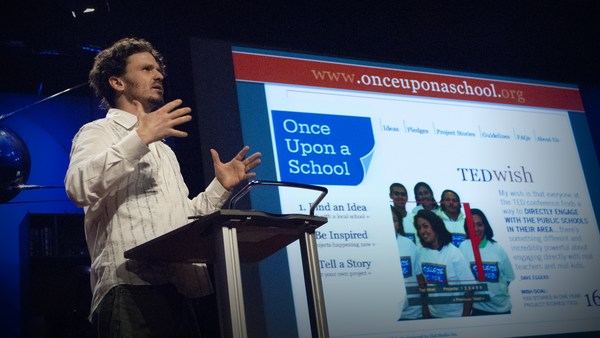Stories - the “Once upon a times.” Some stories are joyful, some are sad, some are painful, some are inspiring. All are beautiful in their own way. Some stories are in the moment, fleeting, to be experienced and lived, and then vanish into the universe. Some stories are lasting and recorded to be shared for ... well, for who knows how long; we’re still counting. Some stories are true, some are make-believe, many are somewhere in between. Some stories are remarkably simple; some are incredibly complex. The infinite variety of stories - one of the things that makes us human, and all humans have stories. Lots of stories. We all know that, but we don’t always appreciate it, much less apply it. So I want to focus on seeing the story and argue that the ability to see the story is an overarching attribute of successful people. Now, seeing the story manifests in several ways: First off is a recognition that we are all part of the same story. And with that comes the responsibility to care for others. It’s an outward look and a focus on the community. We have stories to listen to, stories to understand. Listening to everyone’s story is a good place to start building relationships, and I’m a big believer in the power of relationships. Knowing how to build good relationships is essential for successful people. Good relationships that are built on trust, good relationships that are built on respect, good relationships that are built on empathy. Good relationships lead to partnerships, partnerships lead to joint visions, joint visions lead to universal buy-ins, and universal buy-ins lead to accomplished goals. But the story to the goal starts with a relationship. Few careers or career paths, for that matter, operate in isolation. We need others. We need teammates. And notice I'm saying teammates, not fellow group members. Teams are dynamic and evolving and everyone is contributing. A team resolves problems constructively with everyone harmonizing their thoughts and talents with everyone else’s. A successful team also improves everyone’s self-confidence, because every voice is heard and respected. We can’t be afraid of what are the strengths of others to draw out other’s unique strengths with honest critiques and expect the same to be done for us. Partnering relationships come from having a strong, confident sense of self. Others aren’t the enemy. They aren’t a foe to be overcome. They're an ally in the process. Good relationships are also built on inclusion, because some relationships, some people’s voices, some people’s stories need nurturing. We spent too much of our history thinking only certain voices matter, and now is the time to amplify some of those previously ignored voices. We haven’t spent enough time listening to everyone, and I don’t know a single great relationship that doesn’t have listening as a major component. We need to think about relationships more, and maybe we need to think about how to teach relationships as part of seeing how our stories are intertwined with the stories of others. The second way of seeing a story as demonstrated by successful people is in the ability to see their story as a way to connect to the world. We have stories to engage with. Anyone can fish, right? Drop a line in the water. But successful fishers understand the story of the particular fish they are going after. They understand what is most likely to bite on, when is most likely to bite, where the fish is most likely to be in, and why the fish might bite on their line instead of their fishing buddies’. Who, what, when, where, why? Elements of a story. Math isn’t just about numbers; it’s the story of the connections between the numbers. Art isn’t just about colors; it’s the images those colors paint and the stories they tell in people’s imaginations. Stories of history just can’t live in the past; we need to be able to see how those stories affect today and tomorrow. Attorneys tell the stories of their clients. Doctors listen to the stories of their patients. Salespeople convey the story that their product will save time or make life better. Stories - they form the fabric of our lives. I’m a journalist by trade, and now I teach journalism. One of the suggestions I give young journalists is to find the story. Facts are facts, and facts are the most important, but people relate to other people on a whole other level. Find the story behind the facts, I tell my students. Find the story that illustrates the facts. Find the story that breathes life into the facts. Don't just tell me, for example, that some health care workers are heroes in our COVID era. Tell me the story of Terri, who missed their child’s seventh birthday party to stay with a dying patient who had no one else to hold on to. The details of the story are important; they add flavor to the soup. If I were to ask you to tell me about your pet, you would probably start saying “Well, their name is ... ” The name - it adds a detail, helps me, helps us understand just a little bit more about your pet and you. We can’t care about everything, we can’t connect to everything, we can’t see the story in everything. But we need to care about some things. It’s important. That emotional investment spurs so much of what makes days worth living. People don’t just work long and hard hours to make money. At least I don’t, and I hope others enjoy the story of their work as much as I enjoy the story of mine. But to focus just on the money aspect - if putting money in the bank is your only goal, your excitement and dedication won’t last long. It’s what you can do with that money: provide for your family, help others, take that trip, drive that car, eat that food, retire with that standard of living. It’s the story of the money that makes the paycheck meaningful. The final way I think seeing the story is an important attribute for successful people is in the ability to see their own story and believe in its possibilities. We have stories to write. Successful people, they dream big. They dream up fanciful lives, full of adventures, full of love, full of friends, of caring for others, full of joy, full of serenity, full of career success, however they might define it. Or they don’t. Dreams, like stories, come in all shapes and sizes. But, no matter the dream, with it comes the responsibility. To continue with our story analogy, we can’t skip pages, a plot can’t have holes in it. The road is paved with the hard work of building our foundation and adjusting to the twists and turns of every chapter. Successful people know how to handle disappointments, because every story has them; know how to overcome fears, because every story has them; know how to manage victories, because they are part of every story, too. Successful people own their stories. They understand that they are primarily responsible for writing it. Yes, I understand, the playing field is not level, and much work needs to be done to make it more equitable and fair, but successful people do things intentionally. They are focused and don’t just drift along on the winds and whims of fate. They make decisions and take responsibility. They write their own stories. One final related brief point - successful people also need to know that someone else believes in their story, too. And this ties back to relationships and maybe the most important takeaway from this talk. Successful people surround themselves not with “yes” people, but with “yes, you can” people. And in many ways I see that role as my story, being one of these “yes, you can” people, as a teacher, as a professor, getting students to believe in themselves as much as I believe in them. You know, our stories have probabilities and possibilities, and the probabilities will always outweigh the possibilities, but the possibilities will always outnumber the probabilities. I want to open students’ minds up to the possibilities. I hope I’m successful at it, because my story is just one of the stories out there that all of us can listen to and understand, can engage with, and can write. Stories are powerful and magnificent things, and successful people can see them. Thank you. (Applause)





